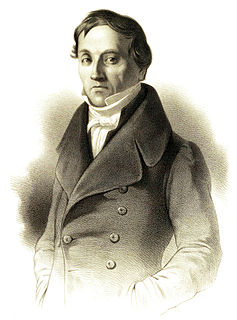A Quote by William Law
We may justly condemn ourselves as the greatest sinners we know because we know more of the folly of our own heart than we do of other people's.
Related Quotes
We may know ourselves, and yet even with all the efforts we make, we do not know ourselves. We know our fellowman, and yet we do not know him, because we are not a thing, and our fellowman is not a thing. The further we reach into the depths of our being, on someone else's being, the more the goal of knowledge eludes us.
The greatest barrier to own own healing is not the pain, sorrow or violence inflicted upon us as children. Our greatest hindrance is our ongoing capacity to judge, to criticize, and to bring tremendous harm to ourselves. If we can harden our heart against ourselves and meet our most tender feelings with anger and condemnation, we simultaneously armor our heart against the possibility of gentleness, love and healing.
In wishing to know ourselves fully, we must forget our quest for gain and seek only completion. At a certain point in our development, we no longer even seek to become Mystic, Magister, Sorcerer, or Witch: we seek only our own perfection in the wholeness of our Will, in the joining of light with dark and strength with love. We are varied and gorgeous yet pure of heart. Our aim is this: to know ourselves and to know the world.
We forgive, if we are wise, not for the other person, but for ourselves. We forgive, not to erase a wrong, but to relieve the residue of the wrong that is alive within us. We forgive because it is less painful than holding on to resentment. We forgive because without it we condemn ourselves to repeating endlessly the very trauma or situation that hurt us so. We forgive because ultimately it is the smartest action to take on our own behalf. We forgive because it restores to us a sense of inner balance.
The surest way to know our gold, is to look upon it and examine it in God's furnace, where he tries it that we may see what it is. If we have a mind to know whether a building stands strong or not, we must look upon it when the wind blows. If we would know whether a staff be strong, or a rotten, broken reed, we must observe it when it is leaned on and weight is borne upon it. If we would weigh ourselves justly we must weigh ourselves in God's scales that he makes use of to weigh us.
Life hands us a lot of hard choices, and other people can help us more than we might realize. We often think we should make important decisions using just our own internal resources. What are the pros and cons? What does my gut tell me? But often we have friends and family who know us in ways we don't know ourselves.
Know thyself! This is the source of all wisdom, said the great thinkers of the past, and the sentence was written in golden letters on the temple of the gods. To know himself, Linnæus declared to be the essential indisputable distinction of man above all other creatures. I know, indeed, in study nothing more worthy of free and thoughtful man than the study of himself. For if we look for the purpose of our existence, we cannot possibly find it outside ourselves. We are here for our own sake.
Our first problem is that our attitude towards sin is more self-centred than God-centred. We are more concerned about our own "Victory" over sin than we are about the fact that our sin grieve the heart of God. We cannot tolerate failure in our struggle with sin chiefly because we are success oriented, not because we know it is offensive to God.
To fear death, my friends, is only to think ourselves wise, without being wise: for it is to think that we know what we do not know. For anything that men can tell, death may be the greatest good that can happen to them: but they fear it as if they knew quite well that it was the greatest of evils. And what is this but that shameful ignorance of thinking that we know what we do not know?






































